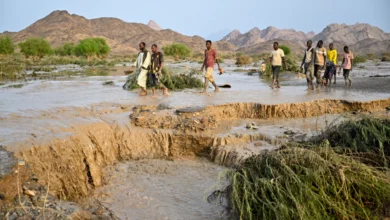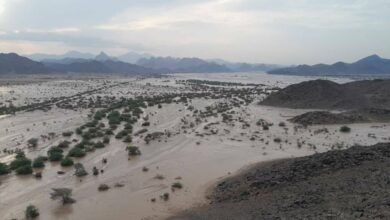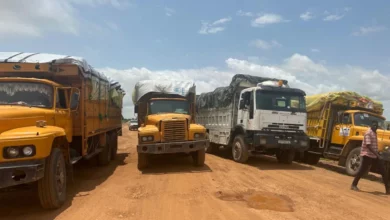Al-Masry Al-Youm reporter Salma Elwardany was one of passengers on a flight to cover the Egypt-Algeria match at Merreikh Stadium in Khartoum, Sudan. Here, she sheds light on the untold stories of the event.
"Yes," was the answer every fan on my flight gave when I asked if they expected deadly clashes between Algerian and Egyptian fans after the match.
"There will be blood" was the mood among passengers flying to attend the match in Khartoum. When asked why they would participate in an event that they expected to be violent, most said their reason involved the news they had read about "massacres" of Egyptians in Algeria.
More than a month before the 14 November Egypt-Algeria match in Cairo, a verbal war broke out between fans of both teams. The press in both countries highlighted the seriousness of the event and the probability of violent clashes during and after the match. In the days before last Wednesday’s play-off in the Sudanese capital, the tone accelerated. News reports, as well as rumors, about Egyptians killed in Algeria and Algerians killed in Cairo spread like wildfire.
Everything went relatively well until we were had almost reached Merreikh Stadium. The Sudanese security forces threw a tight security cordon around Khartoum to prevent violence between fans who were corralled into separate sections of the stadium.
From my seat on the Egyptian side I could hear the vocal support for the Egyptian players. I could also hear slogans and chants using dirty language that were aimed at the opposing players and fans. Some fanatic Egyptians raised fingers and made hanging gestures at Algerians. But the Egyptian fans displayed no signs of violence or revenge after the match.
One hour after the match was over, vocal clashes erupted when an Algerian fan got out of a car that was full of Algerian fans and flags. He started making offensive gestures towards passengers on the bus. The Egyptians got mad and an exchange of insults started between both parties. Some Egyptians threatened to beat the Algerian, but others calmed them down because they believed our number was small compared to the Algerians.
After a few minutes Algerians started to throw stones at our bus. Most of the windows were smashed, but nobody was injured. The Sudanese driver suggested turning off the bus’s lights so as not to be visible to the Algerians, but they continued violently knocking on the bus. Some even tried to enter.
After seeing that horrifying scene, everyone sought refuge under their seats. Then some Sudanese residents called on us to take shelter in their yards. We rushed to their house, located out of the way to the airport. We stayed there for half an hour, as people looked for tools to defend themselves against an unknown number of Algerians.
Rumors and stories of murdered Egyptians began to spread between those who were already prepared to believe anything about the Algerians. Members of the Sudanese army came to take us into the bus and confirmed that the Algerians were gone.
It took us two more hours to arrive at the back of the airport. At this point we were denied entry by the Sudanese forces. There we met hundreds of Egyptians who had more or less had the same experience. Rumors quickly spread about a large numbers of Egyptians killed and hurt, which I never saw. Most of the discussions during this time revolved around Algerians hating Egyptians without reason, and Sudanese colluding with Algerians against Egyptians.
Nobody has ever talked about how Egyptian officials, press institutions, security services, and other involved parties were not able to protect their citizens. Indeed, they actually facilitated the travel of thousands of Egyptians to attend the event, even though it was expected to be violent and dangerous.
Nobody thought that Algerians would, like Egyptians, be stirred up by rumors about eight Algerians killed by Egyptians. No one ever thought about how Egyptians, Sudanese, and Algerians blindly follow their governments and non-governmental institutions, acting however they are asked.
When I arrived at Cairo Airport, I found myself crying. I thought about people of the same region who are ready to kill each others over football. "What if it was about food?" I asked myself.




